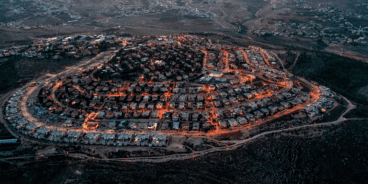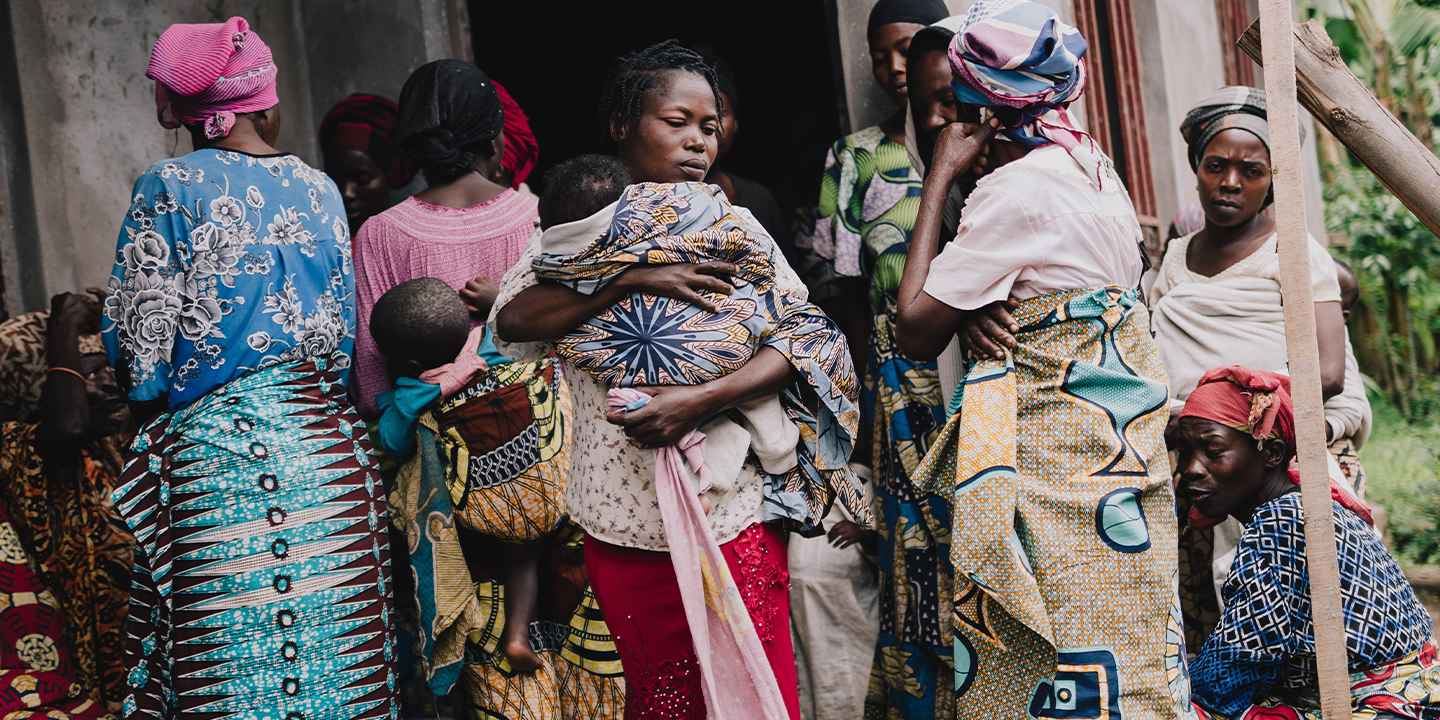

Atrocity Alert No. 391: Democratic Republic of the Congo, Haiti and Nigeria
Atrocity Alert is a weekly publication by the Global Centre for the Responsibility to Protect highlighting situations where populations are at risk of, or are enduring, mass atrocity crimes.
RECURRENT ARMED GROUP ATTACKS THREATEN POPULATIONS ACROSS EASTERN DR CONGO
In the first three weeks of April more than 65 civilians have been killed by armed groups in the Democratic Republic of the Congo’s (DRC) conflict-ridden Ituri and North Kivu provinces. In Ituri, the Cooperative for the Development of the Congo (CODECO) reportedly killed 25 civilians in the village of Galay. A local official said armed men shot indiscriminately and many residents jumped into the Ituri River to escape the attack, with some remaining missing. In Beni, North Kivu, the Allied Democratic Forces (ADF) allegedly killed at least 40 civilians in a spate of attacks. According to local sources, the ADF “are sowing terror and desolation,” as they launch repeated attacks on communities and civilian property, particularly on the border between North Kivu and Ituri.
While the escalation of violence provoked by the March 23 Movement armed group in North Kivu has drawn significant attention in recent months, the latest violence by the ADF and CODECO highlight the ongoing risk to populations facing sustained atrocities and insecurity by other armed groups. More than 120 armed groups and militias remain active in eastern DRC, many of whom have perpetrated systematic attacks against communities. The UN has previously accused CODECO of potential crimes against humanity for its role in inter-communal violence between ethnic Lendu and Hema communities in Ituri, while the ADF has previously been responsible for crimes against humanity and war crimes.
The latest attacks occur amidst a gravely deteriorating human rights and security situation since the beginning of the year. Humanitarian partners reported that nearly 200 attacks by armed groups occurred in Ituri alone between January and March, representing a 10 percent increase compared to the same period six months prior. According to the UN Secretary-General, CODECO and the ADF were responsible for the majority of civilian killings between 1 December and 19 March, with 354 civilians killed by these groups in North Kivu and Ituri combined. The volume of attacks across the eastern provinces has at times strained the capacity of the government’s armed forces (FARDC) and the departing UN peacekeeping operation in the DRC to provide adequate protection to populations.
Reflecting upon recent reporting by UN officials and mechanisms, Volker Türk, UN High Commissioner for Human Rights, stated that, “Many of these serious human rights violations could amount to atrocity crimes, and the alleged perpetrators and their accomplices must be held to account.”
While attempting to combat the ongoing threat posed by armed groups, the FARDC, as well as the bilateral and regional military forces deployed in the eastern provinces, must strictly comply with international human rights and humanitarian law standards. The DRC government should provide additional security to populations who remain vulnerable to ongoing ADF and CODECO attacks. The international community and DRC government should provide sufficient resources for humanitarian relief.
UNRELENTING GANG VIOLENCE HEIGHTENS PROTECTION RISKS IN PORT-AU-PRINCE, HAITI
Populations across Port-au-Prince, Haiti, continue to grapple with a wave of violence from armed gangs that control most of the city. On 11 April armed men killed around 10 people at the Cabaret public market and looted businesses. Aid workers have said that the ongoing violence resembles a war while one journalist based in Haiti reported “systematic attacks, everywhere and [against] everybody.” Catherine Russell, Executive Director of the UN Children’s Fund (UNICEF), stressed, “The Haitian population is caught in the crossfire… Each day that passes brings new deprivations and horrors to the Haitian population.” In the first three months of the year, at least 1,554 people were killed and 826 injured, according to the UN. Gang rapes are common during the attacks, with the Haitian human rights organization, the National Human Rights Defense Network, documenting at least 64 rape survivors from January to March, while stating the actual figure is likely significantly higher.
Since 29 February the two largest gang coalitions – G9 and Gpèp – have joined forces and launched coordinated attacks across Port-au-Prince targeting police stations, prisons, government and educational institutions and civilian property. Earlier this month, gangs looted the National Library, threatening historic documents critical to Haitian cultural heritage. Key roads are impassible while the international airport and main port remain closed, leading to shortages of food, medical supplies and other essential goods. The health system is at the point of collapse, and the few hospitals still operating are overwhelmed.
Amid the escalating violence, many schools across Port-au-Prince are inaccessible. Some classrooms and gymnasiums have been transformed into temporary shelters for those displaced while others are occupied by gangs and/or have been looted or destroyed. In one recent incident, 3,500 children were trapped in two schools in the La Saline neighborhood as gangs fought around them. UNICEF said children are “terrorized and traumatized,” some after seeing burned bodies in the streets. In gang-controlled areas, girls have been ambushed and collectively raped by gang members in broad daylight while on the way to school.
Persistent violence in the capital continues to force residents to flee, risking traveling on gang-controlled routes. According to the International Organization for Migration, nearly 95,000 people have fled since 8 March. As the number of people displaced grows, women and children face increased risk of sexual violence and at times have no other choice but to sleep exposed on the streets.
The international community, particularly the United States, must take stricter measures to stop the flow of weapons and ammunition to Haiti, which provide the means for perpetrating ongoing abuses. Sufficient resources are urgently needed to allow for the immediate and safe delivery of life-saving aid, and humanitarian spaces and critical infrastructure must be protected. States in the region must end the collective expulsions and forced returns of Haitians.
ATTACKS AND KIDNAPPINGS CONTINUE UNABATED IN NIGERIA
On Friday, 5 April, at least 21 villagers in Kogi State, Nigeria, were killed by Fulani herders. A local resident said approximately 100 herdsmen attacked the village and shot sporadically. The attack was reportedly a reprisal following an attack a few days before by the village members, during which they killed six Fulani, including two by beheading.
Violence between farmers and herders has become increasingly common in recent years, particularly in the Middle Belt where competition over land use overlaps with ethnic and religious divisions. The Boko Haram insurgency in the northeast has exacerbated the problem by driving herders into the Middle Belt and southern regions, while climate change-induced aridity in the north further compounds these challenges.
Meanwhile, 14 April marked 10 years since Boko Haram abducted over 200 girls from their school in Chibok. The attack sparked global outrage, which prompted the #BringBackOurGirls movement. Although some of the girls escaped, were released or rescued, 96 remain in captivity, according to the UN Children’s Fund (UNICEF). In the aftermath of the incident in Chibok, the Nigerian government endorsed the Safe Schools Declaration and adopted a Safe School Initiative to raise funds to make schools safer. Despite these measures, schoolchildren remain vulnerable to kidnapping, particularly in the northwest.
In addition to kidnappings by Boko Haram in the northeast, rampant armed banditry in the northwest has made criminal kidnapping for ransom commonplace as bandits have escalate their attacks in recent years. Since 2014 more than 1,680 students have been abducted in Nigeria, according to Save the Children. During March UNICEF raised alarm regarding a worrying trend of attacks on educational institutions in Nigeria. On 7 March armed bandits surrounded a government-owned school in the town of Kuriga, Kaduna State, and kidnapped 287 students. Two days later, another armed group broke into the dorm of a boarding school in Gidan Bakuso, Sokoto State, kidnapping 17 students. The significant threat of attacks on schools has contributed to deteriorating absentee statistics, with one in three Nigerian children not in school, according to UNICEF.
Priscila Vazquez, Nigeria expert at the Global Centre for the Responsibility to Protect, said, “While the lack of adequate military protection for vulnerable populations needs to be urgently addressed, social initiatives and political reforms remain crucial for confronting the root causes of conflict, including poor governance, corruption, poverty, youth unemployment, environmental degradation and climate change.” Local peace commissions established to mediate inter-communal tensions and build early warning systems need to be duplicated in other high-risk regions. The federal government and state authorities must improve coordination to develop a common strategy that addresses the country’s protection issues, as well as scale up efforts to make learning safe.
Related Content


Atrocity Alert No. 402: Ukraine, Myanmar (Burma) and Nigeria
